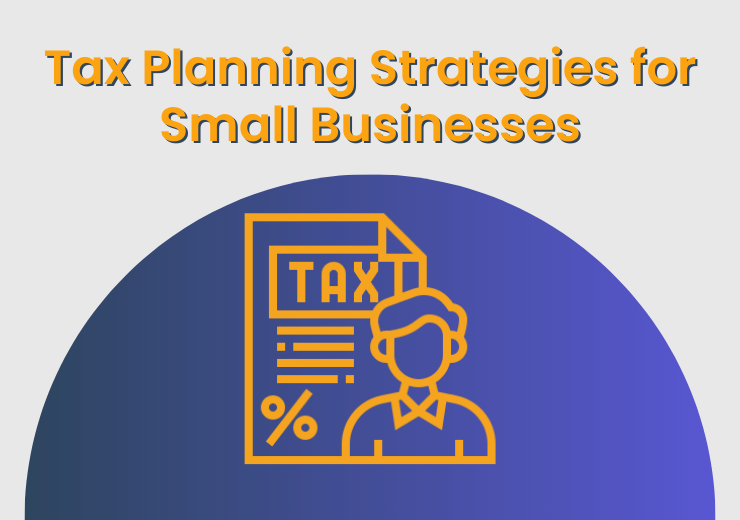I. Introduction
A. The Crucial Role of Tax Planning for Small Businesses
Small business tax planning is not just a financial strategy; it’s a vital element for the growth and sustainability of your enterprise. By effectively managing your tax liabilities, you can free up resources to reinvest in your business, expand your operations, and enhance your competitive edge.
B. Benefits of Strategic Tax Planning
In this article, we will explore a comprehensive guide to tax planning strategies tailored specifically for small businesses. From maximizing deductions to leveraging tax credits and choosing the right business structure, we’ll cover essential techniques to help you optimize your small business taxes. Let’s dive into the world of tax optimization.
II. Understanding Small Business Taxation
A. Different Tax Structures for Small Businesses
Before delving into tax planning, it’s essential to understand the various tax structures available to small businesses. Whether you’re a sole proprietor, LLC, S corporation, or C corporation, each structure has unique tax implications that can significantly impact your bottom line.
B. Tax Compliance and Regulatory Requirements
Small businesses must navigate a complex web of tax regulations and compliance requirements. Staying up-to-date with tax laws is crucial to avoid penalties and ensure financial stability.
C. Common Tax Challenges Faced by Small Businesses
Small businesses often face specific tax challenges, such as limited resources, fluctuating income, and cash flow management. Recognizing these challenges is the first step in developing effective tax-saving strategies.
III. Tax Planning Strategies for Small Businesses
A. Maximizing Deductions
-
Identifying Deductible Business Expenses
Discover how to identify and claim legitimate business expenses as deductions, including office supplies, travel expenses, and business-related meals.
-
Taking Advantage of Depreciation
Learn how to leverage depreciation to recover the cost of assets over time, reducing your taxable income.
B. Leveraging Tax Credits
-
Research and Development Tax Credits
Explore how your small business can benefit from R&D tax credits, encouraging innovation and growth.
-
Small Business Health Care Tax Credits
Understand the available tax credits related to providing healthcare benefits to your employees, promoting both staff well-being and tax savings.
C. Choosing Tax-Efficient Business Structures
-
Sole Proprietorships
Examine the tax implications of operating as a sole proprietor, including the advantages and disadvantages of this structure.
-
LLCs, S Corporations, and C Corporations
Compare the tax features of limited liability companies (LLCs), S corporations, and C corporations, allowing you to make an informed decision about your business structure.
D. Year-End Tax Planning
-
Timing Income and Expenses
Dive into year-end tax planning strategies, such as deferring income or accelerating deductions, to minimize your tax liability.
-
Evaluating Tax-Saving Investments
Explore investment opportunities that offer tax benefits, including retirement accounts and tax-advantaged savings plans.
E. Planning for Business Growth
-
Expansion and Its Tax Implications
Understand the tax implications of business expansion, including considerations for opening new locations or entering new markets.
-
Exit Strategies and Capital Gains Tax
Explore exit strategies for your small business and how to manage capital gains tax when selling your business.
IV. Tax Optimization Techniques
A. The Role of Accounting and Financial Management
Learn how proper accounting practices and financial management can significantly impact your tax planning efforts.
B. Hiring Tax Professionals and Consultants
Understand the benefits of enlisting the expertise of tax professionals and consultants to navigate complex tax regulations effectively.
C. Utilizing Tax Software and Tools
Explore tax software and digital tools that can simplify tax compliance and planning for small businesses.
D. Staying Informed About Tax Law Changes
Stay up-to-date with changes in tax laws and regulations to ensure ongoing compliance and the most effective tax planning strategies.
V. Case Studies: Successful Small Business Tax Planning
A. Real-Life Examples of Effective Tax Strategies
Dive into real-world case studies highlighting how successful businesses have implemented tax planning strategies to their advantage.
B. How Tax Planning Transformed Businesses
Discover how strategic tax planning has transformed businesses, fostering growth and financial stability.
VI. Conclusion
A. The Ongoing Importance of Tax Planning
Conclude by emphasizing that tax planning is not a one-time effort but an ongoing process. By continuously optimizing your tax strategy, you can secure your small business’s financial future.
B. Taking Control of Your Small Business Taxes
Encourage small business owners to take control of their tax planning, leverage the strategies discussed, and seek professional advice when needed to achieve tax optimization and long-term success.

